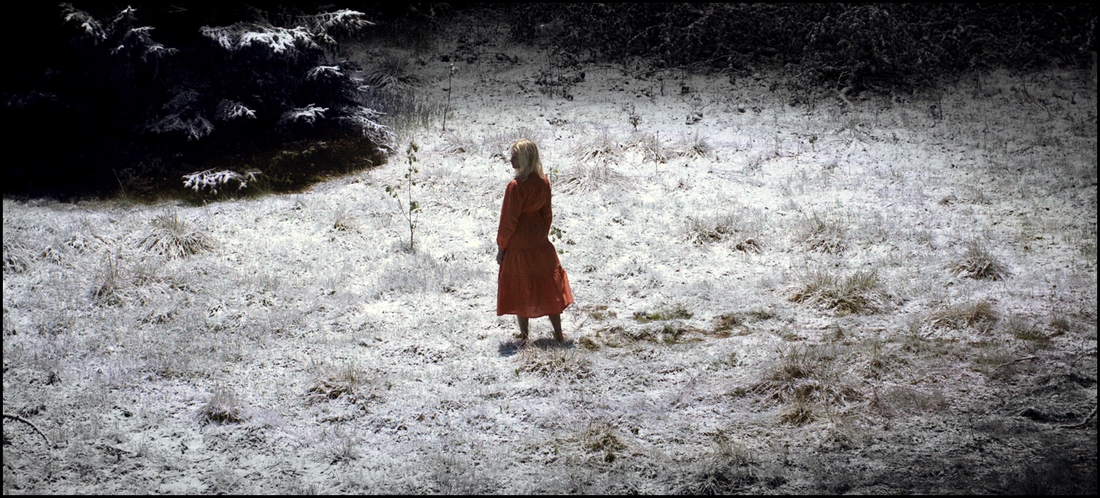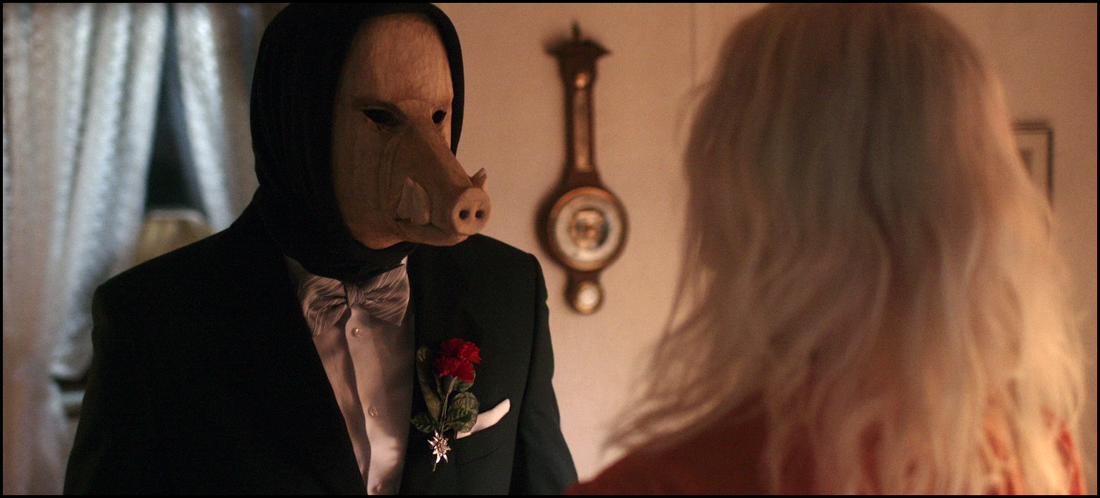Dreaming is a universal experience. Our dreams can be inspired, or they can scare the stuffing out of us. Psychoanalysts have long insisted that dreams are a doorway to understanding what truly goes on in the deep recesses of our personalities, and many experts have written extrapolations over what certain symbols mean when evaluated by conscious minds. I suppose the dark secret is that we’ll never truly know just where dreams come from, but they’ll always find a way to keep us up at night, the very antithesis of what a dream should be intended to do.
Filmmakers around the world have used the stuff of dreams to populate all kinds of interesting tales. Douglas Trumball’s Brainstorm (1983) explored the dangers of bringing one’s own troubles along for the ride into another person’s subconscious. Joseph Ruben’s Dreamscape (1984) spun a therapeutic twist on the idea of a specialist entering another’s dream for the sake of curing various phobias. Christopher Nolan’s Inception (2010) played tricks with reality when it investigated the predicament of manipulating a subject’s frame-of-mind by inserting ideas into gray matter. Still, an entire film series – Wes Craven’s Nightmare On Elm Street films – ratcheted up the sheer terror of having an evil villain inhabit the dreams of his victims solely for the sake of killing them in the vilest ways imaginable.
Make no mistake: Michael Venus’ Sleep (2020) is a horror film. It touches on similar ideas from what’s come before in the landscape of dream pictures, but the storyteller also incorporates some heady ideas about how our past continues creeping into our present in much the same way the stuff of dreams affects our waking moments. Though it’s occasionally unclear what all of this means to the characters he’s created, I found most of the flick refreshing enough that I could actively assign meaning where definition was a bit undercooked.
(NOTE: The following review will contain minor spoilers necessary solely for the discussion of plot and/or characters. If you’re the type of reader who prefers a review entirely spoiler-free, then I’d encourage you to skip down to the last few paragraphs for the final assessment. If, however, you’re accepting of a few modest hints at ‘things to come,’ then read on …)
From the product packaging:
“Tormented by recurring nightmares of a place where she has never been, Marlene cannot help but investigate when she discovers the place is real. Once there, she suffers a breakdown and is admitted to a psychiatric ward. Determined to discover what happened to her, Mona, her daughter, follows and finds herself in Stainbach, an idyllic village with a dark history. What is it that so tormented her mother, and the people of Stainbach? What is the source of the nightmares she suffers? And who is the mysterious Trude that lives in the forest?”
I can’t say this from firsthand experience, but I’ve been told that schools these days don’t teach the real threat Nazi Socialism posed to all of mankind during World War II. (I’ve got no reason to dispute that, either.) I’ve even been told that some students today are told that the Nazis had some good ideas but executed them poorly (and I use that word “executed” lightly). Back in my day when perhaps things were a bit more on track we were told about the horrors that Germany performed, and we were even enlightened about what danger a political party posed to the greater world-at-large. Suffice it to say, the Nazis were some really bad dudes who’d stop at nothing to get what they wanted; and it’s this blinding fury that fuels only a portion of what’s explored in writer/director Michael Venus’ debut feature film, Sleep. Though its characters are much removed from the 1930’s and 40’s, the overall theme here is about lingering influence; much in the same way our dreams impact both our sleeping and waking hours, there’s always a risk of past inspirations affecting subsequent generations. This is why we’re told to learn our history; otherwise, we’re likely to repeat it.
There’s a bit more to the story (again, I won’t spoil it), and there’s an awful lot of symbolism the audience might choose to work through; but – at its core – Sleep juggles a handful of personal issues all the while staying mostly true to the classic revenge-from-beyond-the-grave format. Venus and Thomas Friedrich’s script creates a world within a world wherein characters are allowed to be a bit out-of-touch with reality mostly because supernatural influences have taken residence in their respective souls. Mona has grown increasingly despondent, feeling that her mother’s psychological issues have seeped into her DNA. Franzi (Martina Schone-Radunski) – one of Stainbach’s disaffected youth – discloses to Mona that even she has grown so obsessed with her dreams that she occasionally struggles in understanding when they’ve stopped. Even Lore (Marion Kracht) – Otto’s wife – has fallen into a workday stupor wherein she goes about the routine of living, never quite grasping the greater circumstances at play were she to truly open her eyes.
Because evil never sleeps (and goodness takes effort), this collective slumber is the most dangerous place for all of these characters to intersect. That’s where and when Sleep excels as a slow-burning chiller. After all, no one’s truly aware of the danger they’re in until it’s too late. In fact, sleep is exactly what Trude requires of the players in order for her to extract her nefarious rewards. It was a sleeping nation that allowed Adolf Hitler to rise to power, and it’s the drowsy mountain folk of this resort city who might unbeknownst to them embrace that dark call once again. Perhaps that is the warning to all who come to Stainbach: “Always be watchful.”
You can’t do that while you’re asleep.
Sleep (2020) is produced by Das Kleine Fernsehspiel (ZDF) and Junafilm. DVD distribution (for this particular release) is being coordinated by Arrow Video. As for the technical specifications? The film looks and sounds extraordinary, and I might add that sound played a very role in constructing much of the true frights in here. As for the special features? Well, this is Arrow Video, after all, and they rarely disappoint! The disc boasts an audio commentary, a visual essay, some intellectual discussion about dreams, deleted scenes, some making-of materials, various promotional materials, and a collector’s booklet with related essay. It’s a fine, fine collection that should keep interested parties busy for quite some time.
Recommended. Though I could argue that Sleep may’ve bitten off a bit more than it can chew (such can be the nature in an ambitious director’s first full-length feature), I’d be silly to deny that the film conjured up a beautiful yet nightmarish scenario wherein the past is clearly haunting everyone still alive. Though some might scoff at the comparison, the feature also bears a strong resemblance to early adventures with Freddy Krueger in the popular Nightmare On Elm Street films: while Venus’ picture is decidedly more highbrow about it, the central trickery of a vengeful spirit who needs to inhabit those while asleep can’t be denied. Still, not everything went down easily – I’m still trying to process some smaller moments and what they may’ve meant – but such vivid imagery promises what could be an impressive career for the new storyteller.
In the interests of fairness, I’m pleased to disclose that the fine folks at Arrow Video provided me with a complimentary Blu-ray of Sleep (2020) by request for the expressed purposes of completing this review; and their contribution to me in no way, shape, or form influenced my opinion of it.
-- EZ



 RSS Feed
RSS Feed